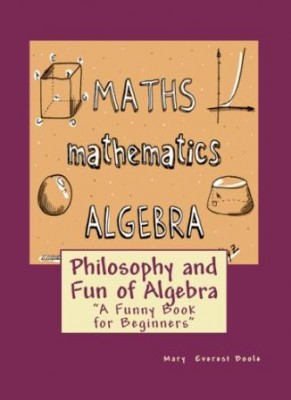More Search Results...
Mary Everest Boole (1832, Wickwar, Gloucestershire – 1916) was a self-taught mathematician who is best known as an author of didactic works on mathematics, such as Philosophy and Fun of Algebra, and as the wife of fellow mathematician George Boole.
Her progressive ideas on education, as expounded in The Preparation of the Child for Science, included encouraging children to explore mathematics through playful activities such as ‘curve stitching’. Her life is of interest to feminists as an example of how women made careers in an academic system that did not welcome them.
She was born Mary Everest in England, the daughter of Revd Thomas Roupell Everest, Rector of Wickwar, and Mary nee Ryall. Her uncle George Everest gave his name to Mount Everest. She spent the first part of her life in France where she received an education in mathematics from a private tutor. On returning to England at the age of 11 she continued to pursue her interest in mathematics through self-instruction.
George Boole became her tutor in 1852 and on the death of her father in 1855 they married and moved to Cork County, Ireland. Mary greatly contributed as an editor to Boole’s The Laws of Thought, a work on algebraic logic. She had five daughters by him.
She was widowed in 1864, at the age of 32, and returned to England where she was offered a post as a librarian at Queen’s College, London. She also tutored privately in mathematics and developed a philosophy of teaching that involved the use of natural materials and physical activities to encourage an imaginative conception of the subject. Her interest extended beyond mathematics to Darwinian theory, philosophy and psychology and she organised discussion groups on these subjects among others.
She died in 1916 at the age of 84.
Philosophy and Fun of Algebra
My Dear Children,
A young monkey named Genius picked a green walnut, and bit, through a bitter rind, down into a hard shell. He then threw the walnut away, saying:
“How stupid people are! They told me walnuts are good to eat.” His grandmother, whose name was Wisdom, picked up the walnut—peeled off the rind with her fingers, cracked the shell, and shared the kernel with her grandson, saying: “Those get on best in life who do not trust to first impressions.” In some old books the story is told differently; the grandmother is called Mrs Cunning-Greed, and she eats all the kernel herself. Fables about the Cunning-Greed family are written to make children laugh. It is good for you to laugh; it makes you grow strong, and gives you the habit of understanding jokes and not being made miserable by them. But take care not to believe such fables; because, if you believe them, they give you bad dreams.
MARY EVEREST BOOLE.
More info →




























